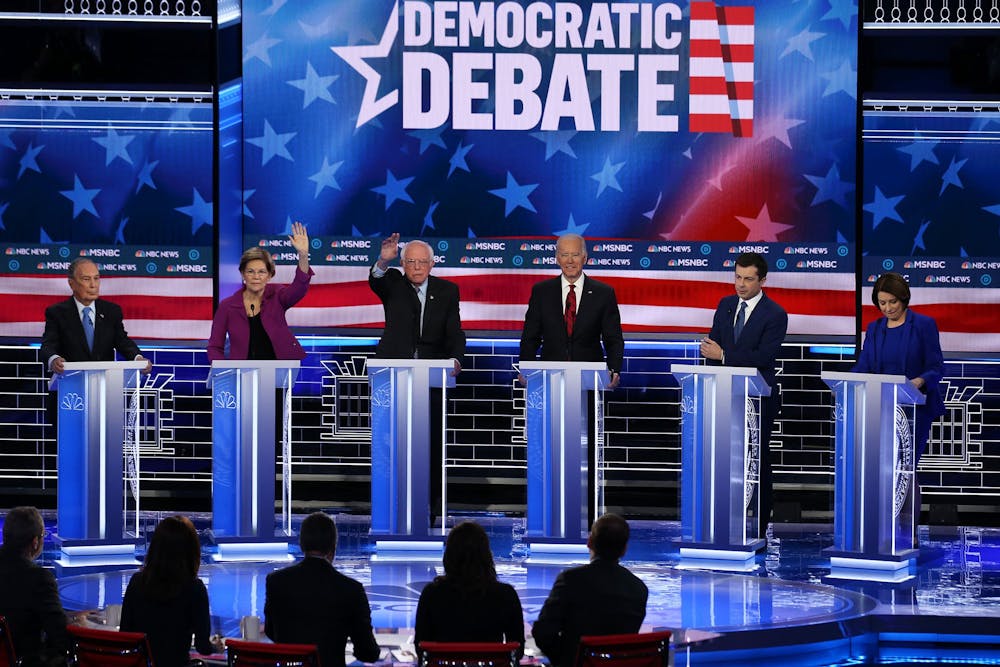After carpet-bombing the American people with $400 million dollars in television and digital advertising, former New York City mayor Mike Bloomberg met the polling threshold to qualify for Wednesday’s Democratic primary debate. The debate did not go well for him.
Bloomberg, who is the world’s 12th richest man and worth around $60 billion, is self-financing his campaign to win the presidency. He is an American oligarch who expanded the stop-and-frisk policy, and defended it with racist rhetoric. He has a Trumpian history of being accused of sexual harassment as well as locking women into binding non-disclosure agreements.
Because of his vast sums of money however, his negative qualities have been largely drowned out in a sea of positive ads that have bombarded tens of millions of Americans’ eyes. Bloomberg has raked in the endorsements from prominent political officials around the country and shooting up in the polls.
Money clearly has a massive influence on elections. Thomas Ferguson has been one of the leading voices studying money’s influence in politics. In 2014, he led a study that looked at House and Senate elections between 1980 and 2014 and revealed that campaign spending was nearly always positively correlated with vote totals and election victories.
But why is this money so effective?
Money is power. After the 1976 Buckley v. Vallejo decision, spending money on political public relations campaigns also became a protected form of speech. This means that people with exorbitant sums of wealth disproportionately influence public discourse.
Most of campaign spending goes directly to advertisements on television and other platforms. Of the $9.8 billion spent on the 2016 election, $7.2 billion of it was spent on television and digital advertising.
The rationale is simple: The more people are exposed to a candidate, the more likely they are to support them. Elections are in many ways simply marketing campaigns like the kind that are used to sell beer or jeans.
AdAge, a major advertising industry publication, gives out annual “best marketer” awards. In 2008, Obama’s presidential campaign won the award, joining commercial enterprises such as Apple and Hyundai.
In 2018, the advertising industry generated $118 billion dollars in revenue. Right now, hundreds of thousands of students are training in the art of emotional manipulation to better generate corporate propaganda. The industry would certainly not be as profitable or offer lucrative career opportunities if it weren’t successful at shaping the opinions and behavior of the American people.
The power to shape public opinion on a mass scale is concentrated in the hands of the rich. Voter behavior can in turn be shaped by those with the ability to raise large sums of money from wealthy donors, or in the case of Bloomberg, from his own pockets. The resulting imbalance of power challenges the very idea of a democracy.
Bryce Greene (he/him) is a senior studying informatics and is the president of the Palestinian Solidarity Committee at IU. First and foremost, he is a citizen of the world.






